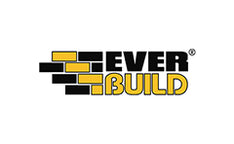Introduction
Drilling into brick, stone, concrete, or blockwork requires more than just brute force — it requires the right tool for the job. Standard drill bits, designed for wood or metal, quickly blunt or snap when faced with tough masonry materials. That’s where masonry drill bits come in.
Understanding how masonry drill bits work, what types are available, and how to use them properly can save time, reduce tool wear, and ensure safe, professional-quality results. This guide explores everything from bit construction and selection to maintenance and buying advice.
What Are Masonry Drill Bits?
Masonry drill bits are specifically engineered to drill through dense, abrasive surfaces such as brick, mortar, stone, and concrete. They are made from hardened steel with a tungsten carbide tip, which withstands wear and grinds through tough material without breaking.
Key Features
- Carbide Tip: A brazed tungsten carbide edge chips away material instead of slicing.
- Spiral Flutes: These grooves remove dust and debris while reducing heat build-up.
- Durable Core: A strong, heat-treated steel shaft provides resilience under pressure.
How Do Masonry Drill Bits Work?
Masonry bits cut using a combination of rotational force and impact energy. When used with a hammer drill or rotary hammer, the bit spins while also delivering rapid hammering motions to break down the surface.
- Standard Drill + Masonry Bit: Suitable for softer materials but slow in concrete.
- Hammer Drill + Masonry Bit: Ideal for brickwork and harder stone.
- SDS Rotary Hammer + SDS Bit: Professional-level solution for reinforced concrete and dense stone.

Types of Masonry Drill Bits
Standard Masonry Drill Bits
Designed for general DIY use. Best for brick, blockwork, and softer stone.

SDS Drill Bits
Feature a slotted shank that locks into SDS drills. Efficient power transfer for faster drilling. Suitable for reinforced concrete and demanding construction tasks.

Multi-Material Drill Bits
Can cut through wood, metal, plastic, and masonry. Useful for quick jobs across different surfaces, though less durable in hard concrete compared to SDS bits.

Diamond-Tipped Masonry Bits
Embedded with industrial diamond grit for precision cutting. Commonly used in tiling and stonework, suitable for granite, marble, and porcelain tiles.
Sizes and Lengths
Masonry drill bits come in a wide variety of sizes to suit different fixings and depths:
- Diameters: From 3mm for small screws and plugs up to 25mm or larger for anchor bolts.
- Lengths: Short bits (50–100mm) for shallow jobs, and long bits (up to 400mm) for deeper drilling.
Pro Tip: Match the drill bit size precisely to your wall plug or anchor bolt for a secure fit.

Choosing the Right Masonry Drill Bit
- Material: Brick and mortar require less force than reinforced concrete.
- Drill Type: SDS drills require SDS shank bits, while standard drills use regular bits.
- Hole Size and Depth: Ensure the bit matches the fixing requirements.
- Usage Frequency: Occasional DIYers can rely on standard sets, but professionals should invest in SDS or diamond-tipped options.
How to Use Masonry Drill Bits Properly
- Pick the Right Drill: For most masonry work, use a hammer drill or rotary hammer.
- Mark Your Spot: Use a pencil or masking tape to avoid slipping.
- Drill Slowly to Start: Begin at low speed before engaging hammer mode.
- Work in Short Bursts: Drill steadily, pausing to clear dust and cool the bit.
- Finish Cleanly: Remove dust with a brush or vacuum before inserting fixings.
Common Mistakes to Avoid
- Using a masonry bit in a standard drill without hammer action.
- Applying too much pressure, which can snap or blunt the tip.
- Letting debris clog the flutes, causing overheating.
- Reusing dull or damaged bits.
Maintenance and Storage
- Clean after use to prevent dust build-up.
- Avoid overheating by drilling in bursts.
- Store in a dry case to protect against rust.
- Sharpen with care — carbide tips can sometimes be refreshed with a diamond file.
Buyer’s Guide: Choosing Quality Masonry Drill Bits
What to Look For
- Securely brazed tungsten carbide tips.
- Strong flutes that resist clogging.
- Heat-treated steel for durability.
Recommended Brands
- Bosch
- DeWalt
- Makita
- Hilti
- Irwin
DIYers can get excellent value from mid-range sets, while professionals benefit from SDS-plus or SDS-max systems for heavy-duty performance.
Masonry Drill Bit Comparison
Use this table to quickly choose the right bit for your material, drill, and budget.
| Type | Best For | Drill Compatibility | Durability | Cost | Common Sizes |
|---|---|---|---|---|---|
| Standard Masonry Drill Bit | Brick, blockwork, mortar, light DIY jobs | Standard drill, hammer drill | Moderate – wears faster in hard concrete | Low – affordable and widely available | 3mm to 16mm |
| SDS Drill Bit | Concrete, reinforced concrete, heavy-duty masonry | SDS drill (SDS-plus, SDS-max) | High – built for heavy-duty use | Medium to High – depends on SDS type and size | 5mm to 25mm+ (long lengths available) |
| Multi-Material Drill Bit | Mixed surfaces (wood, plastic, masonry, light metal) | Standard drill, hammer drill | Moderate – less durable in hard stone | Medium – versatile but not specialised | 3mm to 12mm |
| Diamond-Tipped Masonry Bit | Granite, marble, porcelain tiles, precision stonework | Standard drill (preferably variable speed) | Very High – designed for extremely hard materials | High – premium tool for specialist tasks | 6mm to 20mm (often smaller diameters for precision) |
Conclusion
Masonry drill bits are essential for anyone working with brick, concrete, or stone. By selecting the right type — whether a standard bit for light DIY, an SDS bit for heavy-duty drilling, or a diamond-tipped bit for precision stonework — you can achieve clean, efficient results.
Proper use, maintenance, and storage extend the lifespan of your drill bits, making them a reliable companion for everything from hanging shelves to completing major renovation projects.



















